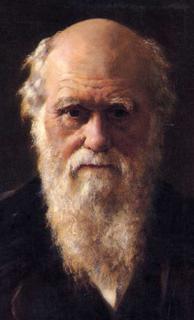
"Atheist" and "Agnostic" are terms that are often confused and misunderstood.
Atheism is the absence of belief in any gods.
Agnosticism is absence in the knowledge of any gods.
In 1883, when writing to Charles A. Watts, publisher of the Agnostic Annual, Thomas Huxley said, "Some twenty years ago, or thereabouts, I invented the word '
Agnostic' to denote people who, like myself, confess themselves to behopelessly ignorant concerning a variety of matters, about which metaphysiciansand theologians, both orthodox and heterodox, dogmatise with utmost confidence...."
People with agendas will have many other definitions of those terms, but the basic, core definitions are simple. The atheist has no belief in supernatural beings, and the agnostic has no knowledge of any supernatural beings. The common misconceptions are that all atheists have an agenda to destroy other people’s beliefs and that all agnostics are still making up their minds.
I don’t care for labels, because it has taken most of my life to come to terms with what I believe and what I don’t believe, and my beliefs can’t easily be explained by one word. Among other things, I believe that we are all "agnostics" because no one can prove (or disprove) the existence of any God or gods. (I am well aware of the fact that it isn’t possible to disprove the non-existent, but the nature of faith suggests we are to believe in something that by definition cannot be known so I stated it that way.) We can "believe" or "not believe" but we cannot "know." Some people are shaking their heads (on both sides!) saying "I KNOW," but I don't
believe that they do. I
know that I do not know.
I do not call myself an “
atheist,” but many religious people would classify me as such. I believe in the
natural world. I accept that many things that are not yet proven may yet one day be, but in order for me to believe in the existence of something, there must be a certain degree of evidence supporting that belief. People who play golf are called golfers. What do we call people who don’t? Why does there have to be a label for people who don’t believe in things that are unsupported by evidence? Why is faith held in higher regard than reason? Christians and Jews believe in Jehovah, Muslims believe in Allah. Christians believe in the divinity of Christ, Jews do not. Each believes in their own God or gods, while disbelieving in the other’s God or gods, but they unanimously condemn the ones who refuse to believe in any god.
I am tired of people hating and killing each other because of their religious differences. I’m tired of
people justifying
hatred based on the ideas and superstitions of our ignorant ancestors of 2000 years ago. I’m tired of people who believe in myths thinking that they are somehow morally superior to those of us who believe only in facts.
Throughout history, the leaders, especially the evil ones, knew the power of organized religion. If you teach people to accept the simple answers to complex questions that do not hold up to scrutiny, without debate and unconditionally, you can get them to fight wars, crash planes into skyscrapers, give up their freedom and their money.
I have met people of all faiths,
and people devoid of faith, who are generous, thoughtful and kind. While I have never met an admitted atheist of whom I was afraid, I remain
terrified of the religious
fanatics who have such a strong voice and
influence here in the USA. The evangelical Christians believe that the time of
Armageddon is near, and some of them
support policies that appear to hasten its arrival!
The Christian gets a second chance: it is taught (by example) that you can lead a lifetime of evil and at the hour of your death you can be saved if only you repent and profess your faith in Jesus. The message here is that your actions do not count nearly as much as your willingness to believe! Well, I can afford myself no such luxury. I have to live with every stupid, selfish and evil act that I have committed because I believe that this is all there is. This alone is more than enough to compel me to do the right thing.
I don’t wish to obliterate other people's faith. It is up to each of us to find the answers to our own questions. Debating faith is like a dog chasing his own tail. You can’t disprove that which does not exist, and no one has proven the existence of any of the Gods that have crowded our skies since the dawn of civilization. Smarter people before me have tried in vain to do both. Belief in some supernatural being or force or whatever you want to call it, or disbelief in same says nothing about the inherent goodness or character of a person.
Someone once said to me, with regard to belief in an afterlife: “In one lies hope, in the other lies futility.” While I can't deny the attraction of an "afterlife," I really don't hold out much hope for one. I will never be able to convince myself to believe things that my own powers of reason deem anywhere from "highly unlikely" to "blatantly preposterous" as a gamble for an afterlife. And I refuse to pretend.
I love life. I love my wife and our children. I like to spend alone time with my wife, work, read, eat, drink red wine, exercise, play, and listen to music. Granted, this is easier for a middle class American who doesn't have to worry about food and shelter than it is for someone who has to fight for survival, but I count myself very lucky that I have this great life. I also know that it is fragile and things could change in one instant. I try to find something good about every day. I love to make people laugh, and to lend a hand where I can. I try to avoid negative, angry and evil people, and to acceptand enjoy everyone else.
Futile? Hardly.
What hope is there if you end up in Hell? According the Bible, each of us have a much greater chance of landing there than heaven, [depending on how you interpret "Hell" - some Christians believe that it is a real place with fire and demons poking you in the buttocks with a pitchfork while others define it simply as the absence of God, and still others as non-participation in the afterlife] and no one knows for sure where they will land. The overwhelming feeling I experienced once I realized that I no longer believed in the biblical answers to life's mysteries was
relief. The contradictions, injustices, and randomness of human existence are easier for me to accept in context of a world devoid of benevolent gods. Suddenly it all made sense to me. Questions like “Why do child-molesters exist?” and “Why do we wage wars over trivialities such as who’s myth has more merit?” are more easily answered by science than by religion.
What do people think they will do for eternity? Life is found inside the risks and the challenges.
It disturbs me that people make decisions, judgments, and laws based on dogma of any kind, religious or otherwise. I like the concept of a
secular constitutional republic, which is what the
founding fathers of this great nation had intended. Freedom of religion means the freedom to practice any religion we desire, or to not practice any religion at all. Separation of Church and State was not a concession to the atheists and agnostics - it was meant to protect all citizens' rights to believe and worship as they deem fit, free from the intervention of the government, and should perhaps be counted as precious by the deeply religious even more so than by the non-believers.
In the end, it isn’t what we believe in that matters; it is what we do.






